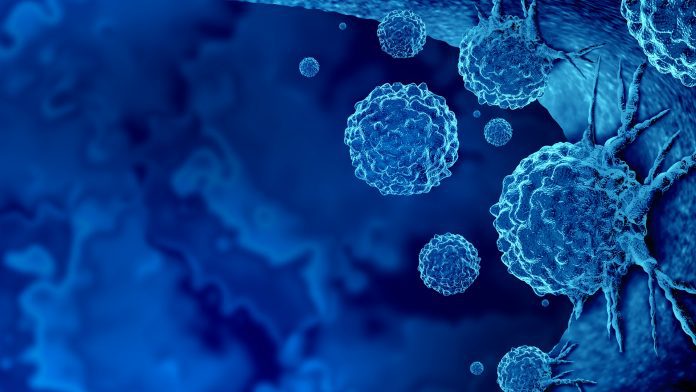
Scientists at Edith Cowan University have made a groundbreaking genetic discovery that may eliminate side effects from lung cancer immunotherapy.
Of all types of cancer, lung cancer is the deadliest form, causing an estimated 1.8 million each year globally. Lung cancer immunotherapy has emerged in recent years as one of the most effective methods to combat the disease; however, the therapy can incur various unpleasant side effects for the patient.
Researchers at Edith Cowan University have potentially identified how to make these adverse effects a thing of the past, discovering that human leukocyte antigens (HLAs) can predict how a patient will respond to lung cancer immunotherapy.
The study, titled “HLA genotype association with the development of immune related adverse events (irAE) in patients with non-small cell lung cancer (NSCLC) treated with single agent immunotherapy”, was published in the European Journal of Cancer.
Negatives of lung cancer immunotherapy
Immunotherapy has become one of the most effective treatments for combatting non-small cell lung cancer, which represents between 80 and 85% of all lung cancer diagnoses. Despite being a powerful cancer-killing weapon, immunotherapy can cause severe side effects, with 74% of patients experiencing immune-related adverse reactions.
Around 21% of patients will develop a grade three or four toxicity, which can evolve into lifelong complications that impact the liver, gut, skin, and endocrine system. Additionally, these complications can mean that cancer treatment has to be stopped, meaning the disease may progress.
Interestingly, patients who experience side effects from lung cancer immunotherapy usually have more positive results with their cancer progression than those who do not.
Associate Professor Elin Gray, the study’s supervisor from Edith Cowan University’s Centre for Precision Health, commented: “Immunotherapies unleash the immune system to recognise and kill cancer cells. But they can also unleash the immune cells to attack the body, causing toxicities.
“Our research shows for the first time that certain genetic features predispose cancer patients to develop side effects or toxicities to anti-cancer therapy. Knowing this will allow doctors to improve the treatment given to patients.”
Analysing human leukocyte antigens
Human leukocyte antigens are markers that are contained in most cells in the body. HLAs are utilised by the immune system to identify which cells do not belong in the body and are part of the alarm system that alerts it to infections, viruses, and cancer.
The scientists examined the HLAs of 179 patients with non-small cell lung cancer, revealing astrong association between the genetic makeup of the HLAs and whether the patient would likely develop side effects from the immunotherapy.
Dr Afaf Abed, the leader of the study, concluded: “This discovery would benefit all non-small cell lung cancer patients, regardless of whether they were genetically predisposed to adverse reactions to immunotherapy or not. If someone is found to not be at risk of side effects, doctors can ramp up the treatment and be more aggressive in fighting the disease
“If they are found to be at a higher risk, doctors can take it easier with the treatment, monitor it and intervene before patients develop grade three or four toxicity. Either way, biomarkers that predict the risk of these immune-mediated adverse events among patients may reduce the risks associated with these treatments.”









